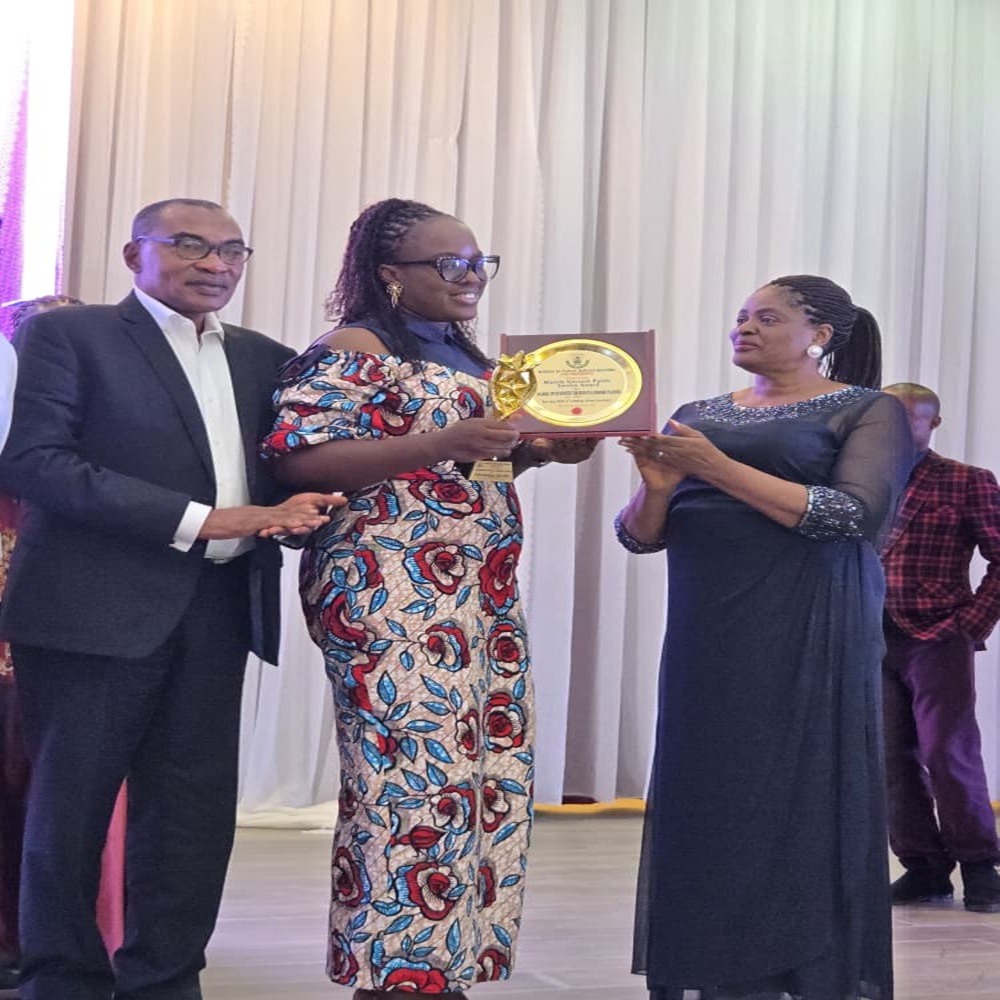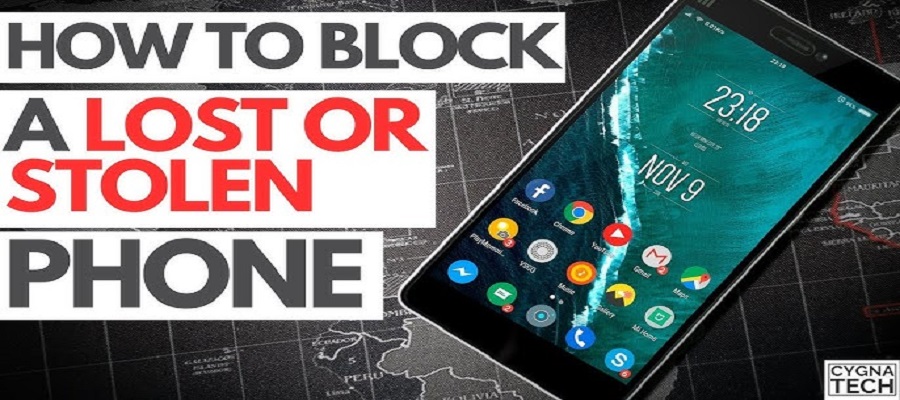Telecom
Bracing up For Advancement in the Telecom Industry

Ever since the telecommunications sector was liberalised by the government of former President Olusegun Obasanjo in his first tern as civilian President, the sector, and technology generally, has witnessed tremendous development.
The tech industry is, however, set to enter another phase of advancement which all stakeholders must prepare for. I recently had a chat with Ajovi Aror, the GMD of IPNX Nigeria Limited to examine what the stakeholders should be preparing for in order to succeed in the coming dispensation.
Ajovi Aror is a respected ICT expert with close to three decades industry experience.
Stating his overview of the current state of the ICT sector in Nigeria, Ajovi said that the ICT sector, like many other sectors in Nigeria today, is struggling under the weight of the current economic recession.
He, however, noted that a bigger challenge of the ICT industry is that Nigeria is mostly acting as distributor of ICT products and services of imported brands.
Another challenge he noticed is the general lack of support for local entrepreneurs, (Start-ups), who are struggling to provide products and services, especially, in the software environment.
Ajovi maintains that, for Nigeria to develop the ICT sector, it cannot remain as resellers, but move on to be producers of the products and services required to stimulate the sector, thus, adding more value.
This, he says, can be achieved if government has more belief in, and supports our Start-ups, as well as inject more investment in them.
Although, some stakeholders think that the bane of Nigeria’s progress in the sector is the fact that our policy does not enforce that Nigerians must be part of these foreign tech companies as is the case in Ghana, for instance, Ajovi thinks that this is not necessarily so because, the foreign enterprises such as Facebook, WhatsApp, Twitter, etc., are dominating the tech space all over the world.
What we should do, according to him, is to go the way if China by encouraging our local entrepreneurs too to develop equivalents of these behemoths, so, they too can thrive.
In China, for instance, they have Alibaba as an equivalent of Amazon, Baidu as equivalent of Google, etc., thus, enjoying the strategic intent of economic, security and development for their country.
Russia and India, Ajovi says, are already stepping up in this direction and we, in Nigeria, too must follow suit.
On the state of Nigeria with the Broadband to improve our service provision, Ajovi is of the opinion that, although, the will and intent are still there, the foreign exchange rate is not favourable.
He noted that investment in Broadband is hinged on a stable foreign exchange regime to enable investors plan and get return on investment.
He sees moving to 4G as the next step in the Broadband quest and this requires a lot if investment in fibre optics backbone.
Ajovi is on the view that right of way is still a local issue which the operstors and the government must resolve.
Many Nigerians are currently complaining about poor services in the telecom sector. On this, Ajovi says mobile services needs to be improved on by the networks.
He, however, said that, with Fixed networks, the quality of service is rising steadily as better ways and response time are now observed by them.
On his thought on Nigeria’s infrastructure capabilities to drive Cloud tech to cut cost, Ajovi cautioned that, Cloud has a potential to widen the gulf between service providers abroad and our local development because we are not in that field yet, hence, hosting with these foreign Cloud outfits, hence, Nigeria should develop this area too for our progress.
CFA is the Founder, www.CFAtech.ng & Co-producer/Presenter,Tech Trends on Channels Television
Telecom
Anambra ICT Agency Celebrates GOVTECH Awards, Applauds Soludo’s Digital Vision

Chukwuemeka Fred Agbata, CFA, md/ceo of the Anambra State ICT Agency, has extolled Governor Charles Chukwuma Soludo, CFR, for his unwavering commitment to technology adoption in Anambra State, a vision that has positioned the state as a shining example of digital governance in Nigeria.

This recognition follows Anambra’s outstanding performance at the Nigeria GOVTECH Gala & Awards 2025, where the state clinched two prestigious honours at the Presidential Banquet Hall, Abuja.
The Anambra State Ministry of Budget and Economic Planning emerged as Best State MDA in Technology-Driven Governance, while the Anambra State Bureau of Public Procurement received the Excellence in Digital Public Procurement Award.
The Commissioner for Budget and Economic Planning, Chiamaka Nnake, and the DG of BPP, Okechukwu Ezeobi, also received Trailblazer Awards for exemplary leadership.
Speaking on the win, CFA commended his colleagues for working closely with the Agency to deepen technology adoption, and reaffirmed the ICT Agency’s commitment to powering the digital infrastructure that supports efficient and transparent government operations in line with Governor Soludo’s “Everything Technology, Technology Everywhere” mantra.
“These awards underscore what is possible when agencies work together with a shared vision,” CFA said. “The ICT Agency is proud to support and enable the digital systems that make such milestones possible.”
He further pledged that the Agency would sustain the momentum by expanding digital integration across government processes, ensuring that Anambra remains at the forefront of e-governance innovation in Nigeria and beyond.
Telecom
IHS Closes Deal to Sell Rwanda Operations

IHS Holding Limited (IHS Towers), an independent tower company, has completed the sale of 100% of Rwanda operations to Paradigm Tower Ventures.

First announced in May, the deal is worth $274.5 million, representing a transaction multiple of 8.3x adjusted EBITDA after leases, and includes about 1,465 sites.
According to IHS Towers, the sale of the company’s Rwanda operations is part of its strategic initiatives targeted at shareholder value-creation options following over ten years of commercial success in the East African country.
The acquisition IHS Rwanda will mark the first investment by Paradigm’s new Sub-Saharan African tower platform, whose focus is on the growth of new build shared wireless infrastructure across the region.
Paradigm is backed by a consortium of equity and debt finance providers, including Convergence Partners and Rand Merchant Bank, a division of FirstRand Bank Limited, who acted as mandated lead arranger, sole funder and financial advisor.
Stephen Harris, co-founder and chairman of Paradigm previously commented: “Rwanda represents an exciting market with high demand for shared wireless infrastructure. The Paradigm team is very much looking forward to building a strong customer focused business, providing high quality and secure infrastructure to mobile network operators.”
Telecom
NCC Launches DMS to Block Fake, Stolen Phones from Mobile Networks

Nigerian Communications Commission (NCC) has announced the implementation of a Device Management System (DMS) designed to block fake, cloned, and stolen phones from accessing Nigeria’s mobile networks.

The system, which has been in development for nearly a decade, will track mobile devices through their International Mobile Equipment Identity (IMEI) numbers across the country’s telecommunications networks.
The initiative follows Nigeria’s recent nationwide migration to the NINAuth digital ID verification platform, demonstrating the country’s commitment to modernizing its telecommunications infrastructure.
Operating through a Public-Private Partnership (PPP) framework, the DMS marks a significant step in regulating Nigeria’s telecommunications device market.
The initiative addresses the prevalent issue of counterfeit and unregistered phones in the country, where estimates indicate that up to 40 percent of mobile devices and tech gadgets are fake or substandard.
The challenge mirrors similar issues faced by other African nations, such as Uganda, which recently launched its own “Simu Klear” system to address counterfeit devices.
According to the NCC, the implementation will proceed gradually to minimize disruption to legitimate users. “Substandard and fake devices can be prevented from connecting to the networks due to the harmful impact these devices have on the quality of services and online safety of the users,” the Commission stated.
The IMEI-based tracking system builds on successful implementations in other regions, where similar technology has been used to recover lost and stolen devices.
The widespread presence of counterfeit devices in Nigeria has been attributed to various economic factors, including inflation, unemployment, and reduced purchasing power, which have led consumers to seek cheaper alternatives despite associated safety and security risks.
The risks include potential exposure to malware and security vulnerabilities, similar to recent incidents where banking trojans have targeted Android users through counterfeit applications.
Dr. Aminu Maida, executive vice chairman, NCC, has made the DMS initiative a key part of his broader regulatory agenda, which emphasizes protecting telecom assets and improving network quality.
The system supports the Commission’s focus on transparency, accountability, and infrastructure protection in Nigeria’s telecommunications sector, which serves over 200 million people.
The effort complements other recent security initiatives in the country, including PalmPay’s multi-layered security strategy to combat digital payment fraud.
The DMS implementation features several key components, including IMEI-based device identification and blocking capabilities, integration with existing network infrastructure, and coordination between public and private sector stakeholders to ensure effective enforcement.
The comprehensive approach reflects the growing importance of mobile device security in an era where authentication methods are rapidly evolving to counter sophisticated cyber threats.

 General News3 days ago
General News3 days agoIHS Nigeria Champions a Prosperous Nigeria through Digital Inclusion at NES #31

 E-Financial3 days ago
E-Financial3 days agoPolaris Bank Wraps Up 2025 Customer Service Week with Renewed Commitment to Customer Satisfaction

 News3 days ago
News3 days agoNITDA DG says Corps Members Catalysts for Technological Innovation

 E-Financial2 days ago
E-Financial2 days agoWeek Ahead: Nigeria CPI, US-China trade woes, big bank earnings

 Telecom3 days ago
Telecom3 days agoMTN Nigeria to Connect 8m Homes with Fibre Network by 2028

 E-Financial3 days ago
E-Financial3 days agoCBN Orders Banks to Refund Failed ATM Transactions within 24 Hours

 Telecom2 days ago
Telecom2 days agoTD Africa and HP Strengthen Partnership, Eye Expansion Across Africa

 E-Financial3 days ago
E-Financial3 days agoTelcos Are Becoming Banks for The Next 2Bn Customers















